What is Lymph?-Composition, Lymphoid Organ and Functions
What is Lymph?
Lymph is a colorless fluid found throughout the body. It bathes the tissues, and provide a vital link between cells and the bloodstream. It is important for maintaining fluid balance and transporting white blood cells, which help fight infections.
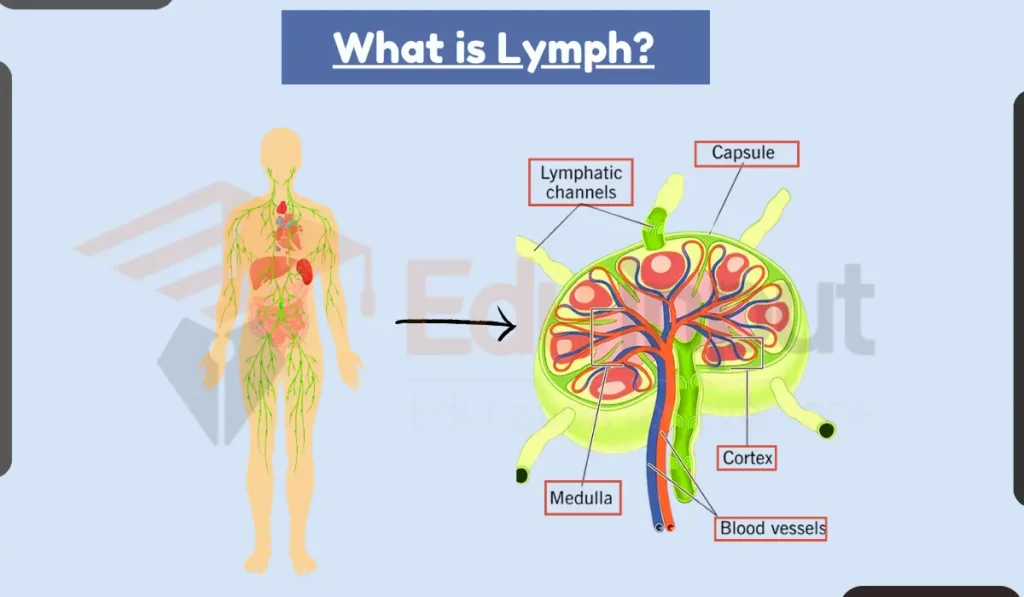
Unlike blood, lymph does not travel inside cells. Instead, it flows freely in the extracellular space (the fluid outside cells). It collects excess fluids from tissues and carrying them through a network of lymph vessels towards lymph nodes. These nodes act as filters, capturing harmful substances and pathogens before returning the cleaned lymph to the bloodstream.
Composition of Lymph
Lymph is composed of two main components:
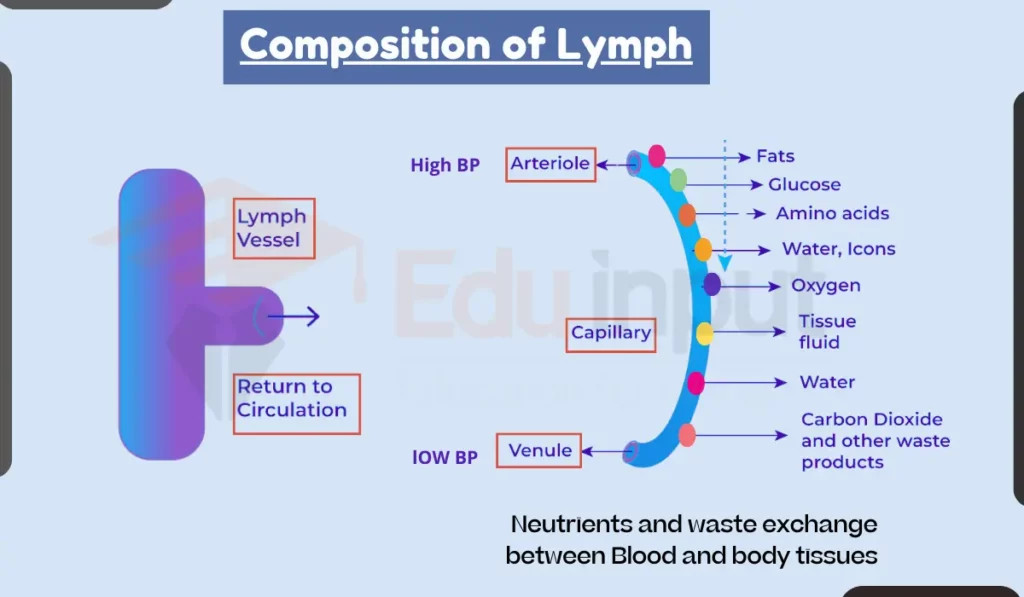
1: Lymph Plasma
Similar to blood plasma, lymph comprises water, inorganic ions, and various organic substances. However, notable differences exist. Lymph contains less calcium, blood proteins, and phosphorus. Interestingly, its glucose content is higher. Additionally, lymph boasts a significant presence of globulins, which act as antibodies crucial for the immune response.
2: Lymph Corpuscles
Unlike blood, lymph lacks red blood cells and platelets. However, it harbors a population of floating amoeboid cells called lymph corpuscles. These are predominantly white blood cells, primarily lymphocytes. These lymphocytes are involved in the body’s immune defense system, constantly scanning for and eliminating invading pathogens.
Lymphoid Organs
Lymph originates from a network of specialized organs known as lymphoid organs. These include lymph nodes, the thymus gland, tonsils, spleen, and Peyer’s patches. Each organ has a unique function in the production and filteration of lymph, ensuring its purity and effectiveness in supporting bodily functions.
1: Lymph Nodes
Structure: Bean-shaped structures distributed throughout the body, connected by lymphatic vessels.
Function: Acting as crucial filters for lymph, lymph nodes trap and remove foreign substances, such as pathogens or cancer cells, that may be present in the lymph fluid. Immune cells within the nodes actively engage with and neutralize these harmful entities.
2: Thymus Gland
Location: Situated in the upper chest, behind the sternum.
Development: Most active during childhood and pre-adolescence, gradually replaced by fatty tissues at puberty.
Function: Primarily responsible for the maturation and differentiation of T lymphocytes (T cells), a specialized type of white blood cell crucial for cell-mediated immunity. The thymus plays a pivotal role in training T cells to recognize and respond to specific antigens without attacking the body’s own cells.
3: Tonsils
- Location: Found in the throat and palate (palatine tonsils).
- Function: Acting as part of the first line of defense against pathogens entering through the mouth or nose, tonsils help prevent infections. They contain immune cells that intercept and neutralize invading microbes, playing a significant role in immune surveillance at mucosal surfaces.
4: Spleen
Location: Positioned in the upper left abdomen, beneath the ribcage.
Functions
- Immune Function: Serves as a primary organ for immune responses, producing and storing immune cells, particularly lymphocytes. It plays a role in initiating immune reactions against antigens present in the blood.
- Filtration: Filters blood, removing old or damaged red blood cells (RBCs) and platelets. The spleen acts as a “graveyard” for RBCs, breaking them down and recycling their components.
- Storage: Acts as a reservoir for blood, releasing stored red blood cells and platelets when needed.
- Antigen Encounter: Facilitates encounters between antigens and immune cells, promoting the activation of immune responses against infections.
Functions of Lymph
Here are some important Functions of Lymph:
Functions of Lymph
Here are the important Functions of Lymph:
1. Maintains Cell Moisture
Lymph acts as a life-giving water source for our cells. By bathing them in
its hydrating fluid, it ensures optimal functioning and prevents dehydration.
2. Nutrient and Waste Transport
Lymph acts as a vital transport system, carrying essential nutrients like
oxygen, hormones, and food materials to nourish cells. It also plays a crucial
role in removing metabolic waste products from cells, ensuring their efficient
operation and preventing the buildup of harmful toxins.
3. Immune Defense System:
Lymph nodes act as fortresses against invaders. They produce lymphocytes,
specialized white blood cells that fight infections. Additionally, lymph
transports antibodies and lymphocytes to the bloodstream.
4. Tissue Fluid and Blood Volume Balance
Lymph plays a critical role in maintaining the delicate balance of fluid in
our tissues and blood. By regulating fluid levels, it ensures optimal cellular
function and prevents tissue swelling or dehydration.
5. Fat Absorption
Specialized lymphatic capillaries in the small intestine, known as villi,
are responsible for absorbing fats and fat-soluble vitamins from food. This
process is crucial for digestion and ensuring proper absorption of essential
nutrients.
6. Microbial Barrier
Lymph nodes act as vigilant filters, preventing the invasion of microbes and
foreign substances. They trap and destroy harmful pathogens before they can
cause damage to the body, safeguarding our health and wellbeing.
7. Blood Plasma Protein Transport
Lymph plays a vital role in transporting plasma protein macromolecules,
manufactured in the liver, to the bloodstream. These proteins are essential for
various bodily functions, including blood clotting and immune response.
8. Maintaining Blood Volume:
Lymph acts as a reserve fluid source for the blood. When blood volume
decreases, lymph quickly flows into the blood vessels, restoring balance and
ensuring proper circulation throughout the body.

 written by
written by 
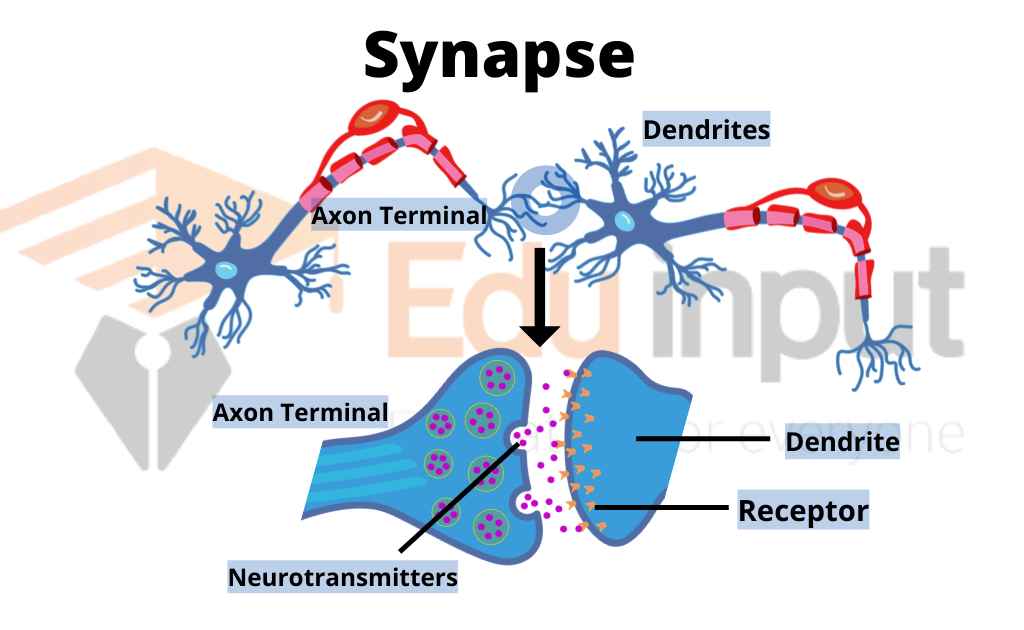
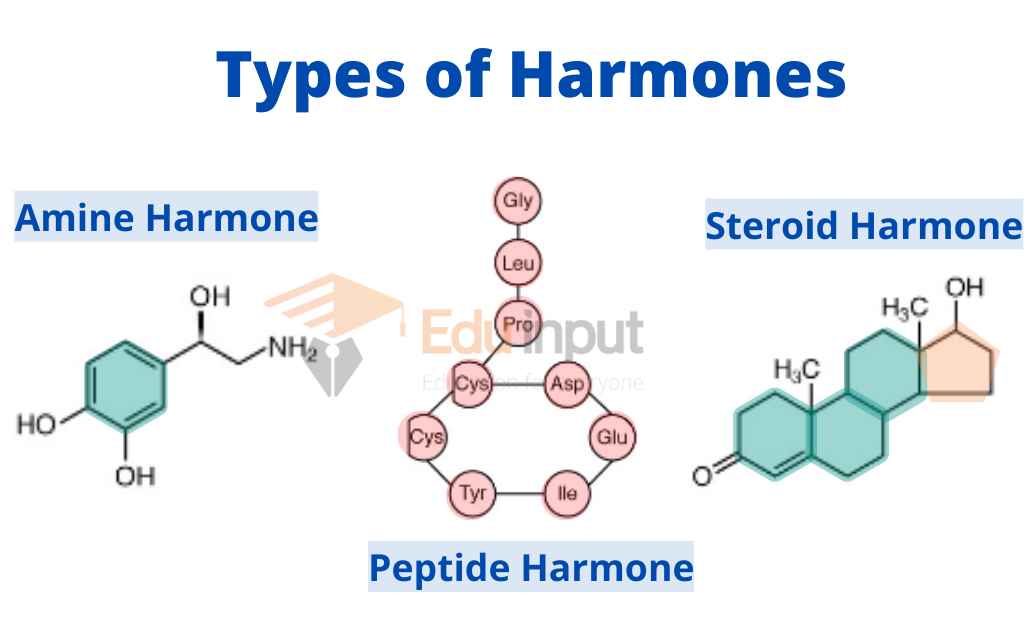
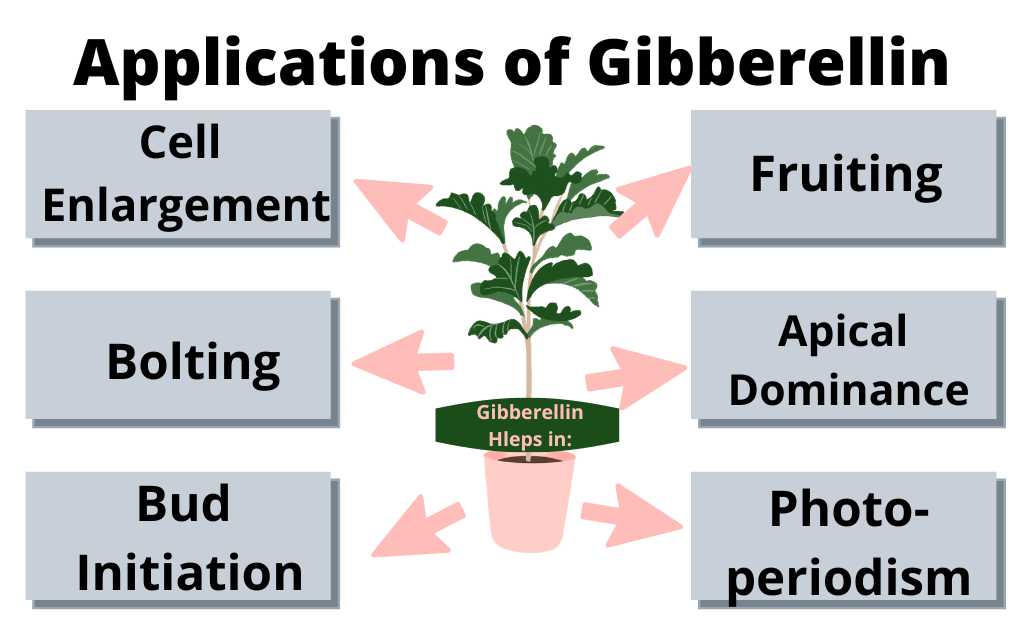

Leave a Reply